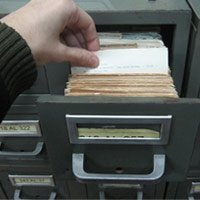How To Utilize Your Categories and Tags More Effectively

I have been blogging for a LONG time, well over 8 years. Throughout the different sites I have maintained, I have learned a lot about organization. In fact, I still am. I have noticed with the influx of bloggers coming in that blog organization is a big downfall. I want to address on how to utilize your categories and tags more effectively on your website.
As a web designer who has designed hundreds of websites over the years, content placement is huge, but site organization is even more important. This is what allows your visitors to effectively use your website and not have problems navigating. Navigating also includes when your visitor hits your 404 page or uses your site’s search. Although there are a lot of people using Google to substitute their site’s built in search capabilities, it is still important to make sure you are categorizing and tagging appropriately.
Categories
Categories are general sections of your website. Some people list loads of categories and select multiple categories for a post. You probably might want to stop doing that. Choose 1 category that generally describes what your post is about. For those who use Tweet Old Post, posts that are not timeless could be excluded if properly categorized.
For example, outdated posts that are more like news may need a category called “News” To explain this further, say I wrote a post about WordPress 3.0 coming out. Obviously 6 months down the line this topic would not be relevant due to the fact WordPress 3.0 was introduced in June 2010.
Another example is comparing your blog to a magazine publication. If your magazine has sections, think of those like categories. Some topics within those sections may relate well in another, but it still fits. You would not see that article published in both sections.
Tags
Tags are where a blogger can get into the nitty gritty. Using the example above with WordPress 3.0, if you just categorize it as WordPress, it would not do. It fits in with News even more. So, when you categorize it in the news category, you can tag it: WordPress, WordPress 3.0, and any other tags you want.
People use the tagging and often mix it up with keywords. It is not so simple. The tags only make sure that if your visitor wants to read a specific thing, that tag will help them find what they need, especially if you use a tag cloud on your 404 page. Your keywords are naturally within your post’s title and content, so when you do write with SEO tactics in mind, that is where that comes into play.
Both tags and categories are merely a method to organize your website.
For some, this might not be all important, but strategically organizing your site will clean up your site and make it less confusing for your visitor. The key is to honestly tag and optimize your sites. While it is tempting to categorize and tag excessively, it is not necessary. While I know this may be a conflicting matter, I know this method works the best and have advised hundreds on how to utilize this solution.
What is your tagging and categorizing strategy for your website?
 Is a Custom Design Essential to Your Blog’s Success?
Is a Custom Design Essential to Your Blog’s Success? 5 Blogging Limiting Beliefs about Money that You Need to Release
5 Blogging Limiting Beliefs about Money that You Need to Release What’s Up Bloggers! Roundup #8 with Don Sturgill
What’s Up Bloggers! Roundup #8 with Don Sturgill SEO is Evolving: Trend You Need to Know About [Infographic]
SEO is Evolving: Trend You Need to Know About [Infographic]
{ 75 Responses }